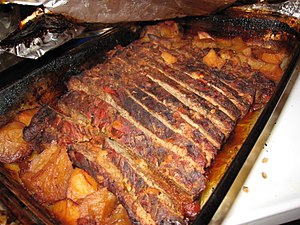I’m writing this for the unaffiliated or secular Jewish parent whose child has just announced that he or she wants a bar or bat mitzvah. You were not dreaming of this, or planning for it. Perhaps your own bar mitzvah was a bad memory, or never happened at all. Perhaps no girl in your family has ever had a bat mitzvah. I’m writing this to suggest some things to think about as you ponder your response.
1. BASIC INFO: For a basic article about modern b’nei mitzvah (that’s the plural) check out Bar and Bat Mitzvah 101 from MyJewishLearning.com. That site is generally a good source of info. They are friendly and respectful of all movements of Judaism (Orthodox, Conservative, Reform, etc.)
2. WHY DOES YOUR KID WANT TO DO THIS? Your first response to your child might be to ask “Why?” The answer may surprise you. It might be that they want a party and presents, but it might also be that they want to explore their heritage.
“A Party and Presents!” – It’s reasonable, then, to say, “You realize there is a lot of work involved?” Typically, preparation for a bar mitzvah involves at least 2 years of study with a teacher. Most kids are not willing to take on a two year project with a steep learning curve just for a lark. If after learning what’s involved, they still want to do it, something more is going on, maybe:
“I want to learn more about Judaism.” or “I’m a Jew, I want to be Bar/Bat Mitzvah!” – Your child is asking you for a grounding in a key aspect of their identity. This is an opportunity, not only for them but also for the rest of the family. Learning is not a commitment to particular kinds of observance; it is simply gaining information so that you can make informed choices about observance. If you have always thought Judaism was bunk, or worse, what’s the harm in actually checking it out? If your experience with it was bad, think about exactly WHAT was bad, and then you can avoid those issues (more about that in a moment.)
3. BUT WHAT IF I AM NOT RAISING MY CHILD AS A JEW? If your child is being raised in another religion than Judaism, then Bar or Bat Mitzvah is not appropriate for them. Talk with your child about why you made the choice to raise them as (fill in the blank here). Share your values and your feelings with them honestly. Own your choices. Parents make many choices for children when they are little: religion, medical choices like vaccination, schools, bedtime, where we will live.
4. HOW DO WE EXPLORE THE POSSIBILITIES, IF WE WANT TO MOVE FORWARD? Your first step should be to call some local synagogues. If your child is ten or younger, most synagogues have regular programs that you can enter. If your child is older than ten, still call the synagogues and talk to them about your options. If there is no local synagogue, then you need to find a rabbi or Jewish teacher to help you. For help locating a rabbi, read Seven Tips for Finding Your Rabbi. If your own experience with Jewish education was miserable, make an appointment to talk with your rabbi or the educator at the synagogue. Share your worst fears with them. Talk to them about how the two of you can partner to make sure this is a good experience for your child. (Keep in mind, though, that “good experience” is not necessarily “effortless” or “easy.” We value the things for which we make an effort.)
5. ISN’T IT EXPENSIVE? I can’t give you an exact figure. You may need to join a synagogue. Lessons of any kind cost money. However, a Bar Mitzvah party does not have to be a Hollywood blow-out. Again, what you are really buying is a learning opportunity for the whole family to explore your roots. You may be pleasantly surprised with what you discover along the way. If money is truly tight, then you should know that many synagogues provide “dues relief” for those who cannot afford a full membership. Membership in the right synagogue can actually be a wonderful deal. For more about why anyone might want to belong to a synagogue, read Why Join a Synagogue?
6. BUT I DON’T KNOW MUCH ABOUT JUDAISM! HOW WILL I KEEP UP WITH MY CHILD? Many people do the bulk of their Jewish learning as adults. When you are looking for a place for your child to learn, ask about the adult learning opportunities there. Also, if you join a synagogue, you will meet lots of other families who are following their children on the learning curve. One of our greatest sages, Rabbi Akiva, did not begin learning until he was an adult. It’s OK to be an adult beginner! (And for more information on topics for adult beginners, you can click on “Especially for Beginners” to the right on your screen. Teaching adult beginners is the heart of my own rabbinate.)
7. MY SPOUSE IS NOT JEWISH! WILL PEOPLE BE MEAN TO US? – Many American synagogues of all denominations reach out to interfaith couples and are ready and waiting for your family. Be honest about your concerns when you look for the right place for your child to learn. If you don’t like what you hear, call a different place. Your entire family deserves to be treated with respect when you are educating a Jewish child.
Parenting is one surprise after another. One of the life-enriching aspects of parenthood is that our children will lead us into learning experiences we never expected to have. My own sons have led me to learn about electronics, to improve my Spanish, to learn about mental illness, and to learn what it takes to survive as a working musician. Some of those things were fun. Others were hard. I hope that if you decide to take your child up on this challenge to engage with Jewish life, that Torah enriches your life and that of your family beyond your wildest dreams.
Like this:
Like Loading...










